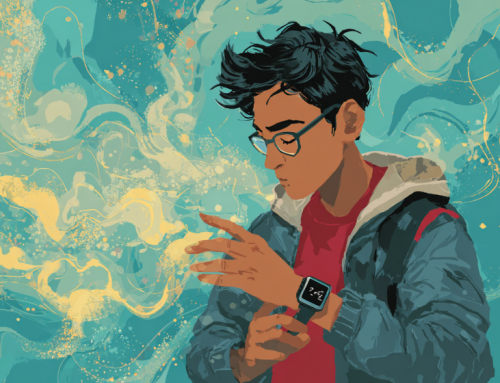
Jaron Lanier speaks at Bloomberg’s Techonomy14 conference in 2014, where he disparaged Bitcoin. (Source: Steve Jurvetson via Flickr)
Tech Guru Says AI Only a Threat If Tech Companies, Humans Allow It to Be
Jaron Lanier, inventor of virtual reality and author of “You Are Not a Gadget” and “Ten Reasons For Deleting Your Social Media Accounts,” has a critical view of AI—and even objects to the term, according to a story from TheGuardian.com.
“This idea of surpassing human ability is silly because it’s made of human abilities.” He says comparing ourselves with AI is the equivalent of comparing ourselves with a car. “It’s like saying a car can go faster than a human runner. Of course it can, and yet we don’t say that the car has become a better runner.”
Lanier, who works at Microsoft as an interdisciplinary scientist, has made exposing the dangers of the web his mission. But he also believes that without safeguards, AI can be even more dangerous than social media.
“From my perspective,” he says, “the danger isn’t that a new alien entity will speak through our technology and take over and destroy us. To me the danger is that we’ll use our technology to become mutually unintelligible or to become insane if you like, in a way that we aren’t acting with enough understanding and self-interest to survive, and we die through insanity, essentially.”
Lanier thinks algorithms have made people “lazy and incurious,” allowing sites to feed them choices for books and music, for instance, instead of exploring for themselves. He cites apps like Netflix, with only a pageful of movies, and sites like Wikipedia for narrowing down information when there’s far more out there. That’s where chatbots might actually offer a better selection of information, he says.
“If you go to a chatbot and say: ‘Please can you summarize the state of the London tube?’ you’ll get different answers each time. And then you have to choose.” This programmed-in randomness, he says, is progress. “All of a sudden this idea of trying to make the computer seem humanlike has gone far enough in this iteration that we might have naturally outgrown this illusion of the monolithic truth of the internet or AI. It means there is a bit more choice and discernment and humanity back with the person who’s interacting with the thing.”
In response to a question about chatbots replacing workers, he notes that their use hinges on what we allow them to do.
“There are two ways this could go. One is that we pretend the bot is a real thing, a real entity like a person, then in order to keep that fantasy going we’re careful to forget whatever source texts were used to have the bot function. Journalism would be harmed by that. The other way is you do keep track of where the sources came from. And in that case a very different world could unfold where if a bot relied on your reporting, you get payment for it, and there is a shared sense of responsibility and liability where everything works better. The term for that is data dignity.”
On the flip side, chatbots can make fake news on a greater scale faster and easier than ever, along with fake photos.
“That combination is where we might see our extinction,” Lanier said.
read more at theguardian.com







Leave A Comment